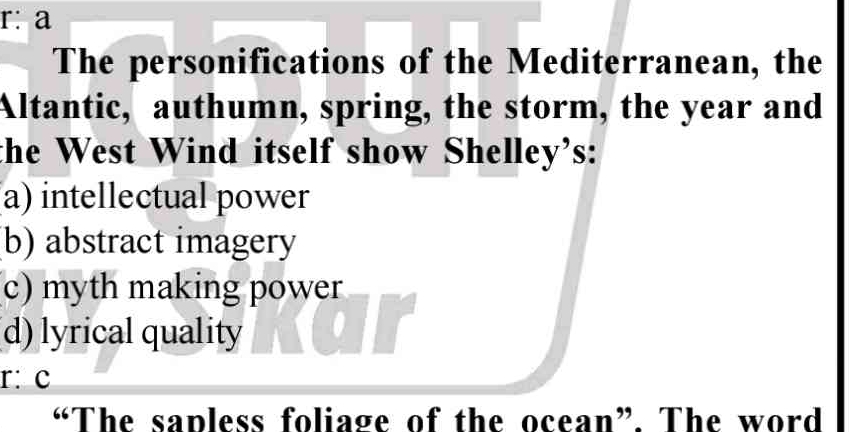The personifications of the Mediterranean, the Atlantic, autumn, spring, the storm, the year and the West Wind itself show Shelley's: (a) intellectual power (b) abstract imagery (c... The personifications of the Mediterranean, the Atlantic, autumn, spring, the storm, the year and the West Wind itself show Shelley's: (a) intellectual power (b) abstract imagery (c) myth making power (d) lyrical quality

Understand the Problem
The question is asking what aspect of Shelley's writing is demonstrated in the personifications of various natural elements, such as the Mediterranean, Atlantic, autumn, spring, the storm, the year, and the West Wind.
Answer
The answer is (c) myth making power
The personifications of the Mediterranean, the Atlantic, autumn, spring, the storm, the year, and the West Wind itself showcase Shelley's myth-making power.
Answer for screen readers
The personifications of the Mediterranean, the Atlantic, autumn, spring, the storm, the year, and the West Wind itself showcase Shelley's myth-making power.
More Information
Shelley deftly personifies the West Wind as a force of nature that holds the power to both destroy and renew. The personification of natural elements aligns with the creation of myth-like figures within the poem.
Tips
Consider the literary device of personification, which involves giving human qualities to inanimate objects or abstract concepts, when answering this question.
Sources
- Ode to the West Wind by Percy Bysshe Shelley - Poem Analysis - poemanalysis.com
AI-generated content may contain errors. Please verify critical information